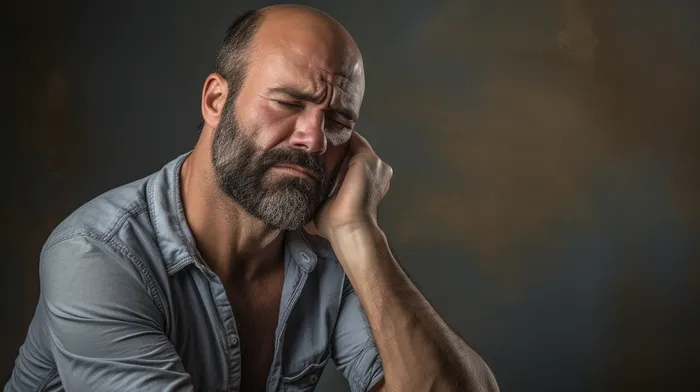Low energy, decreased sex drive, and mood swings are symptoms that many men face as they age. The common solution to these issues is testosterone replacement therapy (TRT), which claims to combat aging and improve overall health. However, TRT is not always the appropriate treatment and may not be the best route to addressing these health concerns.
Instead, I suggest “L-therapy” or lifestyle therapy, which addresses the mix of other lifestyle factors that contribute to low energy levels, sex drive, and vigor. Making these lifestyle changes can significantly impact common symptoms associated with aging.
Testosterone Therapy: What You Need to Know
TRT is typically prescribed for men who have low testosterone levels or have symptoms of low T, even if their levels are within the normal range. Testosterone therapy is available in different forms, including patches, gels, injections, implants, and pills.
However, these options are all drugs, and TRT is different from using natural supplements to help the body produce more free testosterone. Natural supplements do not contain testosterone but can help with the promotion of the body’s own natural testosterone production.
Determining a Normal Testosterone Level
Identifying a “normal” testosterone level for men is challenging, as there are many factors to consider. The daily rhythms, age, use of medication, presence of health conditions, and levels of sex-hormone binding globulin (SHBG) all can impact total testosterone levels. The normal range of total testosterone in adult males is from 240 to 900 ng/dL. A value of less than 200 ng/dL is considered to be hypogonadism or true “testosterone deficiency” when the body is not naturally producing enough of the hormone.
Side Effects of Testosterone Therapy
The side effects of TRT alone should make one consider alternatives to this treatment strategy. TRT can increase the risk of heart attacks, especially within the first three months of treatment. The body might stop making the hormone as it increasingly depends on the therapy, causing the individual to become dependent on TRT.
Other side effects of TRT can include an increased risk for stroke, polycythemia (red blood cell volume elevation), sleep apnea, acne, and breast enlargement.
Consider Lifestyle Changes Instead
If you are considering TRT, it is crucial to first have a doctor check your testosterone levels through blood or saliva tests. Hypogonadism is not that common, so the chances are that you do not need TRT. Also, test your levels in the morning when they are naturally at their highest.
Rather than resort to TRT, consider lifestyle changes to address symptoms of low testosterone levels. Start with improving your diet, incorporating more whole foods and limiting processed foods, sugar, and alcohol consumption. Exercise can also boost testosterone levels. Aim for a mix of aerobic activity and strength training to build and maintain muscles. In addition, ensure you get enough sleep, as testosterone is produced during sleep, and maintaining a consistent sleep schedule is essential to hormonal balance. Lastly, manage stress levels, as chronic stress can deplete testosterone levels and contribute to health issues.
By taking responsibility for your health and addressing lifestyle factors that contribute to low testosterone levels, it is possible to effectively combat some of the most common issues facing men as they age. L-therapy could be the solution to improving your overall well-being without resorting to TRT and the potential risks associated with it. Adopting these healthy habits will lead to a more balanced and energetic life.



![Boost Your Bedroom Game: Eat These Veggies for Better Sexual Health [INFOGRAPHIC]](https://naturalhealthreserve.com/wp-content/uploads/2024/01/best-vegetables-sexual-health-infographic-300x168.webp)